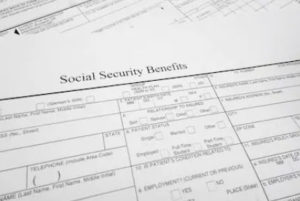
Knowledge gaps can really come back to haunt you, especially when it comes to your financial situation in retirement.
Social Security can be complex and confusing, but it will be an important part of almost everyone’s retirement plan. Half of married couples depend on the program’s benefits for at least 50% of their income in retirement, according to the Social Security Administration, and for more than 20%, that money will account for at least 90% of their income.
If you don’t fully understand how Social Security works, you’re more likely to make choices that could result in you receiving smaller monthly checks. Some of the mistakes that can be most hazardous to your future financial health are also the ones that are the most subtle.
1. Claiming benefits before your full retirement age
If you wait until what the government designates as your full retirement age (FRA) to start claiming benefits, you’ll receive an amount each month that is, theoretically, precisely what you’re entitled to under the program. For those born in 1960 or later, your FRA will be 67. For those born before 1960, your FRA is either 66 or 66 and some number of months, depending on the exact year of your birth.
You can begin claiming benefits as early as 62, but when you do so before your FRA, your monthly payments will be reduced. That reduction can be significant, too. For instance, if your FRA is 67 and you claim at 62, your checks will be 30% smaller than they would have been — for the rest of your life.
Filing for your benefits early isn’t always a bad choice. In fact, it could be the wiser move in some situations. For example, if you don’t expect to spend several decades in retirement, it may be smart to claim early so you have as much time as possible to enjoy your benefits. In other words, if you have a healthy retirement fund and can make do with smaller checks, you might claim early so you have a little extra cash to enjoy early retirement.
However, if you start collecting Social Security early without being clear about exactly how it’s going to impact your financial situation over the long term, that might be a problem – especially if your saving’s are slim and you’re going to be depending on your benefits to cover a significant chunk of your bills in retirement.
2. Failing to track what your future benefits are likely to be
Predicting how much you’ll receive in benefits doesn’t have to be a shot in the dark. It is easier than you may think to get an up-to-date estimate straight from the Social Security Administration — and the more you know, the easier it will be to plan for retirement.
Before you can check your statements and your forecast benefit amount, you’ll need to create a my Social Security account online. Most people no longer receive paper statements in the mail from the Social Security Administration, so logging in online is the only way to get this information. However, even among those registered at my Social Security, only 43% accessed their online statements in 2018, according to the Social Security Administration.
Quite simply, you need to know how much you’re on track to receive from Social Security in order to determine how much you’ll need to have saved in order to cover your expenses in retirement.
3. Not researching which types of benefits you may be entitled to collect
If you’ve worked and paid Social Security taxes for at least 10 years, you’re eligible to collect retirement benefits. However, those are not the only types of benefits you may be entitled to. There are also spousal benefits, divorce benefits, and survivors benefits, for example, but the Social Security Administration usually won’t notify you that you’re eligible to receive them. That means if you don’t do your homework, you might miss out.
Even if you aren’t eligible for benefits based on your own employment history, if you’re married or divorced from someone who is, you may be able to claim benefits based on their work record. If you’re receiving retirement benefits that you’ve earned, you might still be in line for additional money each month if your spouse (or ex-spouse) is entitled to receive significantly more.
Although Social Security was not designed to be people’s only source of money in retirement, its benefits can be a key supplement to your savings and make it easier to achieve the lifestyle you’re hoping for in your senior years. The more you understand about how the program works, the better your chances are of enjoying a comfortable retirement.
The $16,728 Social Security bonus most retirees completely overlook.
If you’re like most Americans, you’re a few years (or more) behind on your retirement savings. But a handful of little-known “Social Security secrets” could help ensure a boost in your retirement income. For example, one easy trick could pay you as much as $16,728 more… each year! Once you learn how to maximize your Social Security benefits, we think you could retire confidently with the peace of mind we are all after.
To learn more go to ssa.gov
Like this:
Like Loading...

